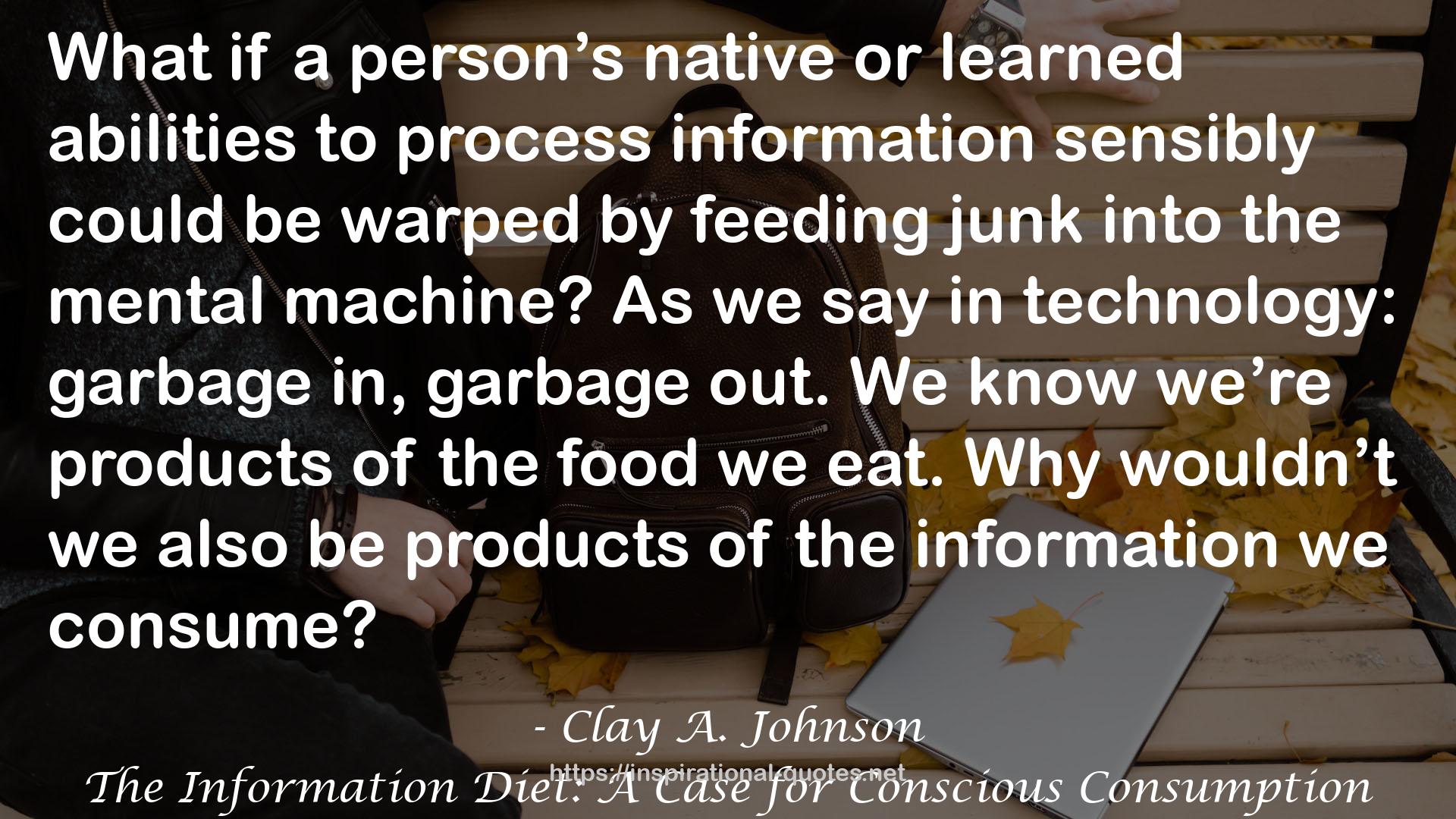8
" There are kinds of food we’re hard wired to love. Salt, sugars, and fats. Food that, over the course of the history of our species, has helped us get through some long winters, and plow through some extreme migrations. There are also certain kinds of information we’re hard wired to love: affirmation is something we all enjoy receiving, and the confirmation of our beliefs helps us form stronger communities. The spread of fear and its companion, hate, are clearly survival instincts, but more benign acts like gossip also help us spread the word about things that could be a danger to us. In the world of food, we’ve seen massive efficiencies leveraged by massive corporations that have driven the cost of a calorie down so low that now obesity is more of a threat than famine. Those same kinds of efficiencies are now transforming our information supply: we’ve learned how to produce and distribute information in a nearly free manner. The parallels between what’s happened to our food and what’s happened to our information are striking. Driven by a desire for more profits, and a desire to feed more people, manufacturers figured out how to make food really cheap; and the stuff that’s the worst for us tends to be the cheapest to make. As a result, a healthy diet — knowing what to consume and what to avoid — has gone from being a luxury to mandatory for our longevity. Just as food companies learned that if they want to sell a lot of cheap calories, they should pack them with salt, fat, and sugar — the stuff that people crave — media companies learned that affirmation sells a lot better than information. Who wants to hear the truth when they can hear that they’re right? Because of the inherent social nature of information, the consequences of these new efficiencies are far more dramatic than even the consequence of physical obesity. Our information habits go beyond affecting the individual. They have serious social consequences. Much as a poor diet gives us a variety of diseases, poor information diets give us new forms of ignorance — ignorance that comes not from a lack of information, but from overconsumption of it, and sicknesses and delusions that don’t affect the underinformed but the hyperinformed and the well educated. "
― Clay A. Johnson , The Information Diet: A Case for Conscious Consumption
13
" The world of public relations is moving in the opposite direction. In 2008, there were over 275,200 public relations specialists in the United States, earning a median annual wage of $51,280. The Bureau expects the field to continue to grow, upwards of 25% between 2008 and 2018. As a result, our reporters are suffering from information obesity themselves. For every reporter in the United States, there are more than four public relations specialists working hard to get them to write what their bosses want them to say. That’s double what there were in 1970. Journalists are assaulted with press releases stuffed in their mailboxes, polluting their email inboxes, and pouring out of their fax machines, full of pitches, sound bites, and spin. "
― Clay A. Johnson , The Information Diet: A Case for Conscious Consumption

